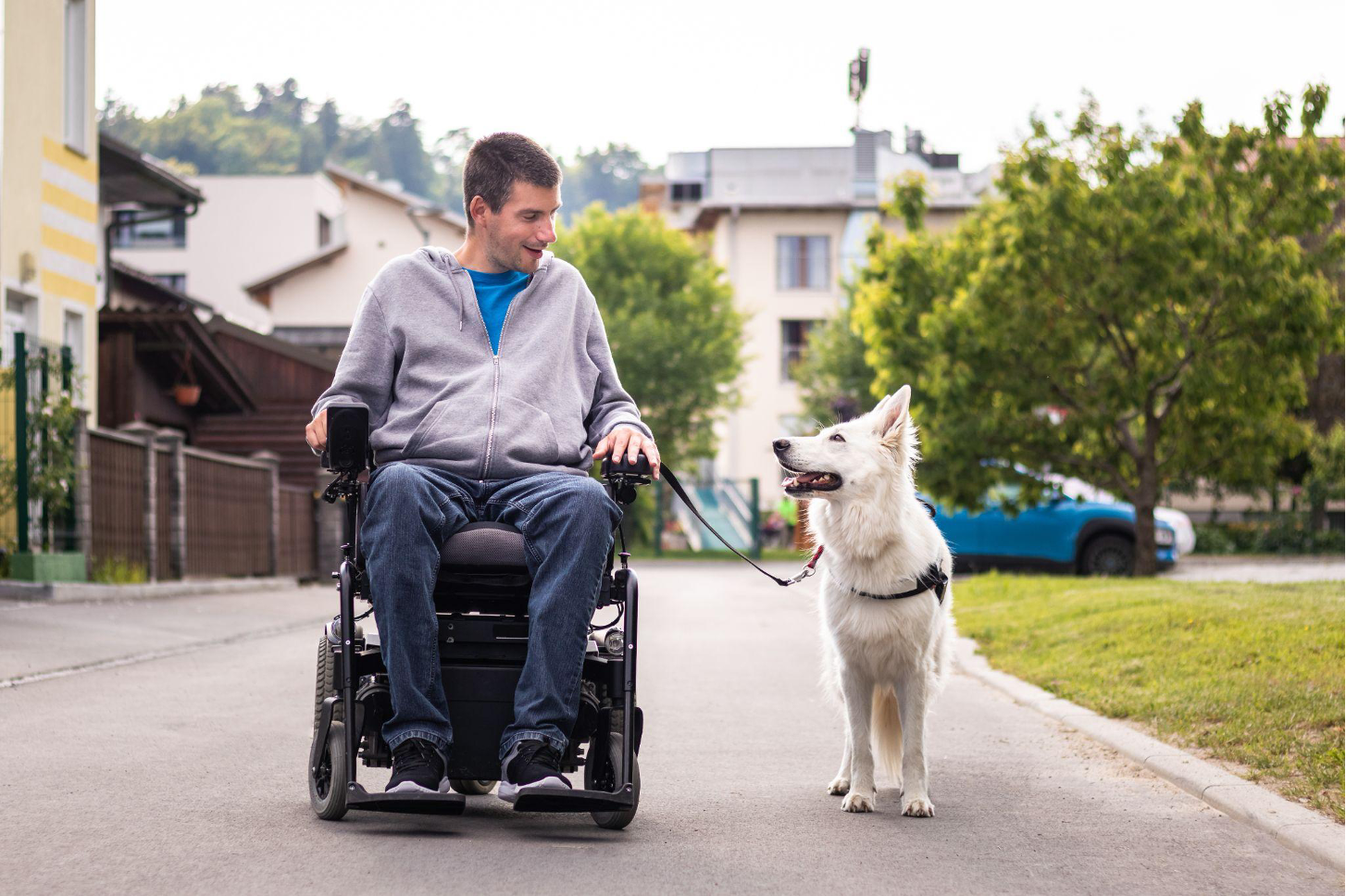
Service dogs are invaluable to those with disabilities as they enable them to have far more freedom in their lives. Unfortunately, pet allergies can be a huge roadblock to those who would otherwise benefit from a service dog.
When this happens, many look to so-called “hypoallergenic” dog breeds to save the day. Unfortunately, there is no such thing. Today, we’ll be explaining the myth behind hypoallergenic dog breeds, recommending some great breeds for service work, and providing information on how you might better manage your allergies.
The Hypoallergenic Dog Myth
Unfortunately, there is no such thing as a hypoallergenic dog. When referring to dogs, hypoallergenic simply means “doesn’t shed a lot.” The true meaning of hypoallergenic is “unlikely to cause an allergic reaction.”
Many websites will tell you that dogs that shed less are less likely to cause an allergic reaction, but there is currently no scientific evidence to support that claim. In fact, some studies have even shown the opposite!
In one such study, Labrador retrievers (who shed a lot) left behind fewer allergens than poodles (who don’t shed much at all). All this is to say that any dog, regardless of whether listed as a “hypoallergenic” breed or not, could cause an allergic reaction.
How many allergens a dog sheds does not depend on breed but instead varies on an individual basis. This is why it’s possible for a Labrador to shed fewer allergens than a poodle.
There are some people who are not allergic to dogs but who have similar symptoms to allergies. Oftentimes, fur is an irritant to these people. In this instance, a low-shedding breed could be the right option to relieve symptoms.
Another thing to keep in mind is that dogs shed six different types of allergens, labeled Can f 1 through 6. Some people who are allergic to Can f 5 may only experience reactions around male dogs because Can f 5 is produced in the prostate. Therefore, getting a female service dog can be a viable solution. You can get an allergy test to determine which allergens affect you.
Best “Hypoallergenic” Service Dog Breeds
Now that you know there is no such thing as a hypoallergenic dog, we’re going to give some recommendations of breeds that make great service dogs. Among these breeds will be some low-shedding or “hypoallergenic” breeds for those who may be sensitive to fur.
1. Labrador Retriever
The Labrador retriever is a favorite for service work. This breed is intelligent, easy to train, and hard-working. They love to fetch, so learning service tasks like picking up dropped items or retrieving your medication will be a breeze for them.
2. Poodle
The great thing about poodles is that they come in three sizes to suit your needs: standard, miniature, and toy. Poodles are some of the smartest dogs around, which makes them quick studies capable of learning and performing complex service tasks. They don’t shed a lot, which is nice for anyone who hates fur on their clothes as well as those who may have sensitivities.
3. Bichon Frise
The bichon frise is another highly intelligent breed; historically, they performed tricks in circuses! They make great service dogs because they are devoted partners and quick learners. The bichon frise has a low-shedding coat and will require professional grooming to keep it short and easy to manage.
4. Yorkshire Terrier
Yorkies are lovebugs, which makes them easy to train as they are eager to please their loved ones. They’re also talented at various dog sports and have a reputation for being some of the best therapy dogs. Their coat will need regular maintenance to keep it short and manageable, but otherwise, these small pups have a lot to offer.
5. Bernese Mountain Dog
Thanks to their large size, Bernese mountain dogs excel as guide dogs and mobility assistance dogs. They’re quite loving toward their owners but tend to be a bit aloof toward strangers, which is a good thing for service work as they may be less likely to get distracted. Berners are smart, strong, and loyal.
Allergy Management Is the Best Solution
While there is no such thing as a hypoallergenic dog, there are plenty of dogs (including low-shedding ones) that can become amazing service dogs. If you have allergies and need a service dog, talk to your doctor about possible treatments for reducing or eradicating your allergy symptoms.
There are also things you can do at home, such as installing air purifiers with HEPA filters. Once you have a dog, you’ll want to vacuum often and use statically charged tools like Swiffers that will trap allergens instead of sending them airborne like a broom would.
With proper management, you can enjoy the benefits of a service dog without all the itching and sneezing.





